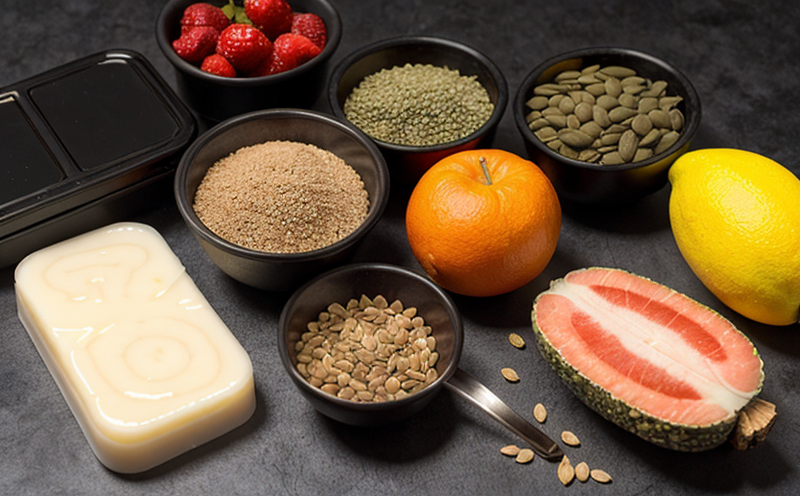EN 17453 Determination of Energy and Nutrient Content in Sports Nutrition
The European Standard EN 17453 provides a detailed procedure for determining the energy content as well as the nutrient composition, including macronutrients (carbohydrates, proteins, fats), micronutrients (vitamins and minerals) and other important dietary components such as caffeine or amino acids in sports nutrition products. This service is crucial for ensuring compliance with regulatory requirements and quality standards, especially for products marketed to athletes and fitness enthusiasts.
The testing process under EN 17453 involves several steps: first, the sample preparation which includes homogenization of the product into a consistent mixture. Once prepared, the samples are analyzed using various analytical techniques such as near-infrared spectroscopy (NIRS), gas chromatography-mass spectrometry (GC-MS), and ion chromatography for quantifying macronutrients, micronutrients, and other components.
The accuracy of these tests is paramount, given that the results directly impact consumer health and performance. For instance, incorrect nutrient labeling can lead to misinformation about product efficacy or potential risks. This service ensures that the information provided on labels is accurate and reliable, thereby promoting trust among consumers.
Energy content plays a significant role in sports nutrition as it affects an athlete's overall performance. The standard provides precise methods for determining this aspect, which helps manufacturers ensure their products meet consumer expectations and regulatory standards. Moreover, it aids in the development of new formulations that can enhance athletic performance or support recovery.
This service is particularly relevant for companies involved in research & development (R&D) activities related to sports nutrition. By adhering to EN 17453, they demonstrate their commitment to producing high-quality products that meet both regulatory requirements and market demands. Compliance also enhances brand reputation and consumer confidence, which are critical factors in the competitive landscape of sports nutrition.
In summary, EN 17453 is an essential tool for laboratories specializing in food and feed testing. It ensures that energy and nutrient content data are accurate, reliable, and compliant with relevant regulations. This standard is widely used across various sectors, including academia, industry, and government bodies involved in public health initiatives.
Applied Standards
| Standard Name | Description |
|---|---|
| EN 17453:2018 | Determination of energy and nutrient content in sports nutrition products. |
| ISO 6979 | Milk - Determination of fat content by infrared spectroscopy (NIRS). |
| ASTM E1843-05(2015) | Standard Practice for Determining the Moisture and Total Solids Content of Foods. |
The application of these standards ensures that the testing process adheres to internationally recognized protocols, providing consistent and accurate results. This alignment with global standards enhances credibility and facilitates international trade in sports nutrition products.
Scope and Methodology
| Aspect | Description |
|---|---|
| Determination of Energy Content | Precision calorimetry is used to measure the heat released during combustion. |
| Macronutrient Analysis | Near-infrared spectroscopy (NIRS) and gas chromatography-mass spectrometry (GC-MS). |
| Micronutrient Analysis | Ion chromatography, atomic absorption spectrophotometry. |
The methodology involves a series of steps designed to ensure the most accurate and reliable results possible. The precision calorimetry method for determining energy content is particularly noteworthy due to its high level of accuracy. For macronutrients and micronutrients, NIRS offers rapid analysis, while GC-MS provides unparalleled sensitivity and specificity.
The use of these advanced analytical techniques ensures that even trace levels of nutrients can be detected accurately. This comprehensive approach guarantees that the results meet or exceed industry standards, providing valuable insights for product development and quality assurance.
International Acceptance and Recognition
- EN 17453 is recognized by the European Commission as an official standard within the EU.
- The United States Food and Drug Administration (FDA) accepts EN 17453 results for compliance purposes.
- Several international organizations, including the World Anti-Doping Agency (WADA), incorporate EN 17453 into their testing protocols.
This widespread acceptance underscores its importance in ensuring product safety and efficacy. Compliance with this standard is not only a legal requirement but also a best practice that enhances brand reputation and consumer trust.





